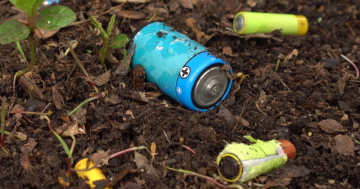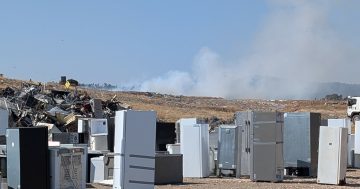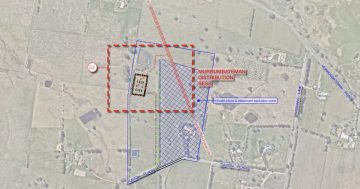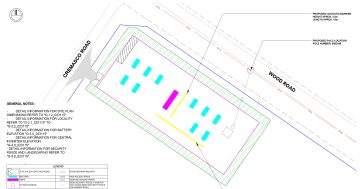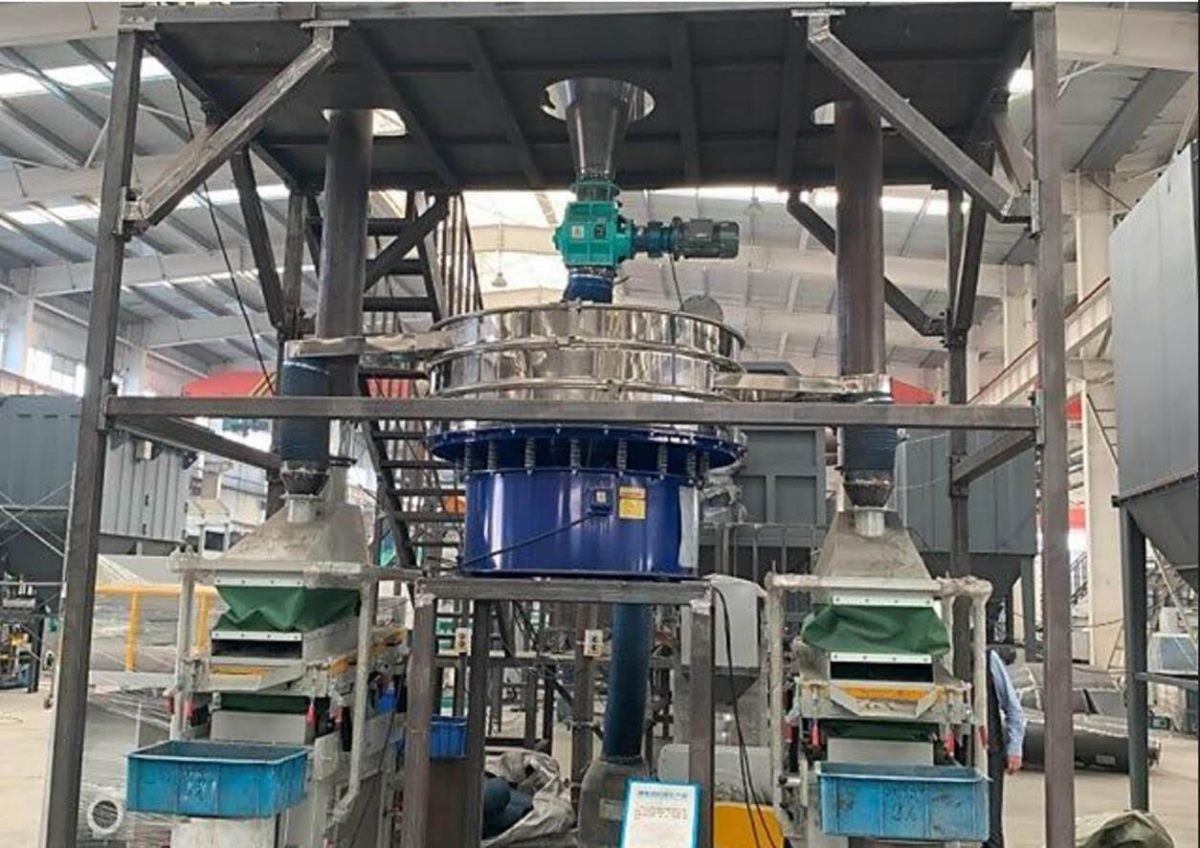
A lithium battery recycling facility will be built near houses if approved, raising concerns over chemical and fire risks. Photo: GHD Group scoping report commissioned by Calibre Metals Pty Ltd.
Landowners in Governor’s Hill are fighting a plan for a battery recycling plant on Edison Road – next to their homes – raising concerns over potential fire danger, waterway contamination and a lack of community consultation.
Calibre Metals Pty Ltd wants to build the nation’s first facility dedicated to recycling lithium-ion battery waste. Only 10 per cent was recycled in 2021. Its proposed 1.5 hectare facility would process up to 3000 tonnes of battery waste per year.
The project would see an enclosed battery recycling machine installed within the industrial building, a liquefied petroleum gas (LPG) tank, an evaporation water-cooling tower, three exhaust chimneys and the fitting out of an existing office complex.
Lithium-ion batteries are rechargeable batteries used in personal electronics such as vapes, laptops, and scooters.
NSW Rural Fire Service’s Scott Conlan thought concerns stemmed from the proposed location.
“The idea is good, we need some recycling facilities, like this particular one, but it’s just in the wrong spot,” he said.
To recycle lithium-ion batteries, they need to be discharged to minimise fire and explosion risk, then shredded into smaller pieces to recover usable material. There are two main methods: a heat-based smelting process and a liquid-based leaching process.
A significant amount of water is required during the process. Mr Conlan warned that the water had the potential to contaminate water courses leading to the Murrumbidgee River if the water used was not retained on-site.
East Wagga resident Natasha Jensen will be able to see the recycling plant from her backdoor if it’s approved.
“My issue with it is the fact that they’ve not notified the area,” she said.
“The area we live in is up on a hill, so the exhaust stacks that they plan to put in for this plant will basically be as high as our properties.
“So if the wind blows the right way, it’ll be blowing it straight in our back doors.”
Certain areas in Governor’s Hill don’t have mailboxes and are not serviced by Australia Post, so residents need to pick up their mail from the post office.
“We all have to go down to the post office and pick up our mail, but no one has put any notification out or anything,” Country Women’s Association’s Ann Adams said.
Mr Conlan said he also didn’t get anything in the mail from the company.
“I don’t want it in my backyard. We’ve got the Bomen Industrial Precinct, designed specifically for heavy industries like this one – that’s exactly where it should go.”
The project is still in its planning stages, and the NSW Government Department of Planning, Housing and Infrastructure (DPHI) is responding to submissions before deciding on whether to approve it.
When contacted by Region, DPHI declined to respond to residents’ concerns about pollution, fire risks or why Edison Road was chosen.
“The proposal has been publicly exhibited and the proponents are now required to respond to all submissions received during the public exhibition period,” a DPHI spokesperson said.
“The department will consider this information carefully as part of its detailed assessment of the proposal and will consult with other key agencies including the Environmental Protection Agency, the Rural Fire Service and other relevant agencies.
“Once the submissions report is received, it will be made available on the department’s website.”
Wagga Wagga City Council Chief Operating Officer Scott Gray said council was not the consenting authority and did not assess or determine the application.
“Council was formally notified of the public exhibition of the environmental impact statement (EIS), which was held between 16 April and 15 May 2025,” he said.
“However, council has not undertaken a detailed assessment of the project and has not formed a position on its overall merits at this stage.
“At present, council does not have a formal process in place for routinely briefing or notifying councillors of State Significant Development (SSD) applications, as these matters fall outside council’s statutory planning responsibilities.
“However, council is currently developing a process to improve internal notification and communication with councillors on major projects of community interest, including SSDs.
“In the meantime, council staff continue to monitor the project and have been advised that council will be provided with an opportunity to comment further following the proponent’s response to submissions.”
Calibre Metals did not respond to requests for comment.







